
الهيئة العامة للإحصاء تثمِّن انعقاد الملتقى الثاني للجمعية السعودية للعلوم الإحصائية وتؤكد أهميته
To be organized by King Khalid University on the 8th of Shaaban
GaStat is stressing on the importance of the second symposium of the Saudi Association for Statistical Sciences
The General Authority for Statistics (GaStat) is stressing on the significant role of the academic sector as it represents one of the four main components of the Saudi statistical sector, which consists also of GaStat, and the statistical units in the public and private sectors. The vice president of statistical innovation and customer service, Dr. Mohammed Alahmed said that the second symposium of the Saudi association for statistical sciences, which will be held on 8/8/1439 H, and organized by King Khalid University under the patronage of the president of King Khalid University, Dr. Falleh bin Raja Allah Al-Solamy, entitled “ The Role of Statistics in Big Data Revolution” is one of the plans that GaStat works on to activate the role of the academic sector including the universities, faculty members, and students. In this respect, he indicated that GaStat is implementing many projects and programs in cooperation with many universities for the purpose of involving the all statistical divisions in the future plan of statistics in Saudi Arabia.
It is worth mentioning that the second symposium of the Saudi association for statistical sciences which will involve a number of scientific lectures presented by some statisticians is considered a good opportunity for all those who are interested in statistics, so they can nominate themselves to the association’s board of directors through convening a general meeting which is preceded by a number of activities.
The Saudi association for statistical sciences was established at King Khalid University in 1425 H. it was established to achieve a clear vision through which the association can participate in developing the Saudi society. This association seeks to create means of communication between those specializing in statistics through convening and organizing seminars and conferences, in addition to building statistical software and technologies, working on new statistical teaching methods, and providing consultations and applied scientific studies for the public and private sectors. It also seeks to support and promote cooperation between researchers in different fields of the statistical sciences inside and outside the Kingdom.
Moreover, The Saudi association for statistical sciences seeks to apply its ambitious plan after restructuring its board of directors during the symposium. This plan is represented in holding international conferences and national seminars within the frame of its approach, which attempts to improve the scientific research in the field of statistics. The association also works on developing the statistical field and activating its role in the society. In addition, it seeks to achieve a scientific communication between its members, strengthen its relations with the universities and the other Saudi institutions, exchange the scientific production and ideas between the scientific authorities and institutions inside and outside Saudi Arabia, in addition to opening other branches of the association in some Saudi universities.

الهيئة العامة للإحصاء وجامعة الملك سعود تؤسسان المرصد الوطني لمشاركة المرأة في التنمية
To build detailed indicators that observe woman’s participation in development
GaStat and KSU Establish National Observatory for Woman's Participation in Development (NOW)
GaStat has signed a memorandum of understanding with King Saud University KSU as part of its policy to meet the needs of customers in the public and private sectors and to establish effective partnerships with all relevant parties, and as part of its attempts to provide innovative statistical products in accordance with international standards; in addition to its efforts to develop the necessary indicators for future and current needs. Moreover, the signing was within the agenda of the first conference of the National Observatory for Women (NOW) titled "The role of women in development towards a thriving economy" which will end on Thursday 19 of Rajab 1439H. The conference aims to evaluate and enhance the role of women in development as well as identifying detailed indicators for their participation in the development fields.
The memorandum was signed by GaStat and KSU with the presence of HE the Minister of Labor and Social Development. It seeks to a cooperation with the Authority within the scope of work of “NOW”; specifically, in building detailed indicators to observe those participations. It also aims to update the indicators periodically, prepare and implement statistical studies to support and improve woman’s participation in development. The memorandum also calls for unifying the efforts and data sources as well as maintaining the security and privacy of data; delivering them to decision makers and beneficiaries based on agreed standards. Additionally, the memorandum requires cooperation and integration between GaStat and NOW to provide electronic services through data exchange to serve the public interest and that is within the authorities of GaStat and NOW.
As a result, GaStat will provide NOW with the related statistical data to build the indicators of woman’s participation in development especially that increasing the woman’s participation is one of the objectives of the Kingdom’s vision 2030. The memorandum also indicates the cooperation between GaStat and NOW to exchange data as well as economic and development statistical indicators that support the work of NOW through (GSN).
On the other hand, the president of GaStat Dr.Fahad bin Sulaiman AL-Tekhaifi confirmed that signing the memorandum of understanding with KSU comes within the framework of GaStat to achieve the statistical transformation in the Kingdom and he also stressed on the importance of the partnership of the academic sector with government entities. Moreover, his excellency explained that NOW has appeared along with the transformations witnessed by the national economy from restructuring and building economic base that relies on diversity and optimal utilization of the great potentials of Saudi woman.
Dr.AL-Tekhaifi indicated that government entities are living in an exceptional stage of support with the availability of participatory tools for the development journey, and that NOW will deeply analyze the statistics related to woman’s participation in development in all its areas to support policy and decision makers.
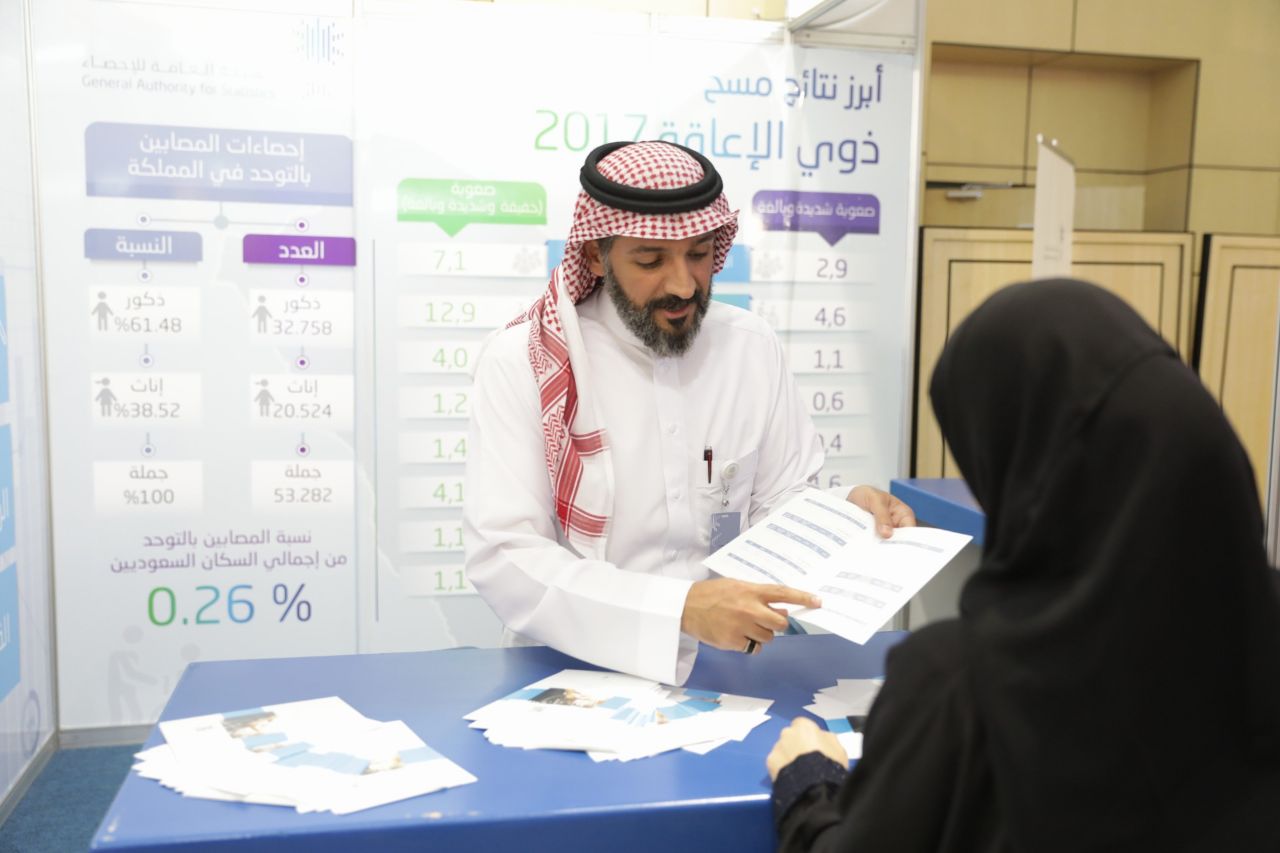
الهيئة العامة للإحصاء : (2.9 %) نسبة انتشار الإعاقة ذات الصعوبة ( البالغة ) بين السكان السعوديين

الهيئة العامة للإحصاء : متوسط معدل النمو السنوي للسكان بالمملكة 2.52%
According to the population characteristics survey, July 2017
GaStat: Population annual growth rate in Saudi Arabia is 2.52%
The General Authority for Statistics (GaStat) indicated that during the previous period, the authority has conducted a set of population statistics surveys, last of which was the population characteristics survey which has been implemented on the field during the period from 17/7/1438 H to 22/8/1438 H corresponding 14/4/2017 to 18/5/2017.
GaStat spokesman, Taiseer Almufarrij said that according to the population characteristics survey2017, the number of Saudi Arabia’s population is (32552336) compared to (31742038) which is the number registered in the demographic survey 2016, with a growth rate of (2.52%). The population are distributed by gender (57.48%) males, and (42.52%) females in 2017 (1438H). those percentages are similar to the percentages of 2016’s survey where males registered (57.44%) and females registered (42.56%). According to 2016 survey results, the number of Saudi population was estimated at (20,064,970) with an increase of (343.392) persons. However, Saudi population are distributed by gender with (50.95%) males and (49.06%) females in 2017 (1438H). those percentages are similar to the percentages of 2016’s survey where males registered (50.96%) and females registered (49.04%).
Almufarrij added that the survey contained households’ data including the marital status, educational status, demographic structure of Saudi and non-Saudi population on the level of Saudi administrative regions. Through the survey, many indicators were extracted such as mortality rate, population’ age and gender structure, and levels of marriage and divorce.
On the other hand, GaStat has started working with specialists and experts from some governmental entities and followed a number of steps in preparation for 2020-1441 H census. The data of this census includes demographic, economic, and educational characteristics of population, dwelling characteristics that are represented in the geographical and distinct data, and dwelling housing characteristics.

الهيئة العامة للإحصاء: ملاحظات الشورى حول التقرير السنوي محل اهتمامنا وعنايتنا
Shura Council confirms that it agrees with the transformation program of the statistical sector
The General Authority for Statistics (GaStat): Shura's Comments about the Annual Report Are of Our Concern
GaStat thanked the Chairman of the Shura Council and all the members for their comments and suggestions about the work of the Authority at its twenty-fifth meeting of the second year of the seventh session, in which the Council discussed the annual report of GaStat for the fiscal year 1437/1438.
The official spokesman of the Authority, Mr. Tayseer Al-Mufrraj, said that GaStat is committed to consider the comments to deepen the positive impact in the development of the statistical sector in the Kingdom and to lead the statistical work.
He stressed that the comments made by the members of the Shura Council are in line with the transformation program of the statistical sector carried out by the Authority.
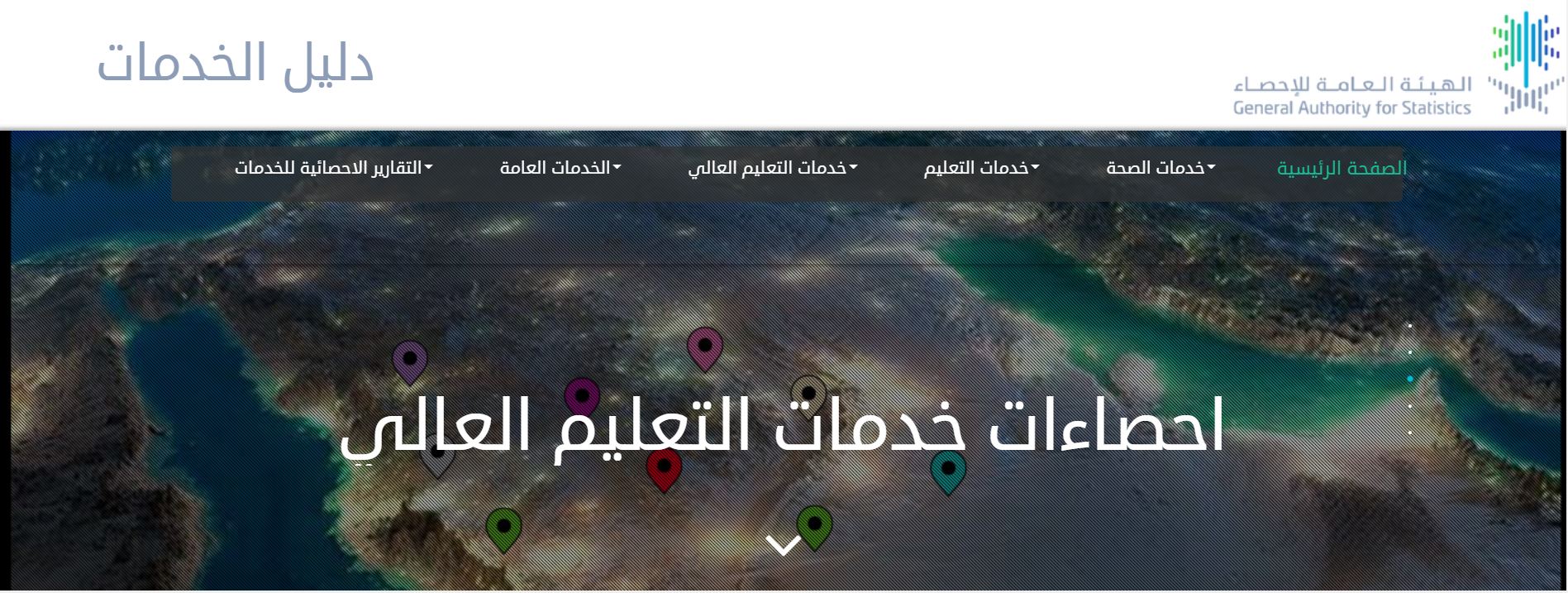
الهيئة العامة للإحصاء تنشر البيانات الإحصائية للخدمات عبر "الخريطة التفاعلية"
It links data to a geographical location to analyze and extract reports
GaStat Launches an “Interactive Map" to Present Statistical Data for the Services in Saudi Arabia
As part of its efforts to support decision makers and policy makers and enable their customers to use statistical data and access them based on their needs, GaStat has launched the "Interactive Map" on its official website www.stats.gov.sa for the Services Guide that was recently released by the Authority, which is the unified reference for the services available in different regions of the Kingdom’s cities and villages.
The interactive map is a technical tool that reviews statistical data by linking the statistical data to the geographical location to show the spread of the services on an interactive map for the Kingdom. This will add extra features and enable the user to make logical questions as well as spatial analysis on the services database. It also enables the user to reach the statistical data of the geographical location clearly for the different distribution of the services at the Kingdom’s level.
Moreover, the interactive map provides basic data for planners, policy makers and decision makers based on the names in the administrative regions. It depends on the data classification in five major groups that include: health services, education services, higher education services, public services, statistical reports of services. The map can review the details of each service according to the service provider, which allows the user to perform a search by specifying the names that contain a specific service within a specific search, or to identify the nearest populated area on the map. It also displays the distribution of services according to the type of service or the administrative areas. Additionally, it includes a "service calculator" which is a tool for making logical queries on the database. The “services calculator” enables a logical search of all the elements of the database and it reviews the results on the map to understand the form of geomagnetic distributions of any search and the possibility to extract the results on an Excel file.
The interactive map provides the totals, components and distributions of the services in Saudi Arabia at the level of its administrative regions, illustrated by graphs and geographical maps. It also offers an application designed to release statistical reports for various services at the level of the administrative region, governorate, municipality or populated area based on the needs of the user and with the possibility to print a report for the search results.
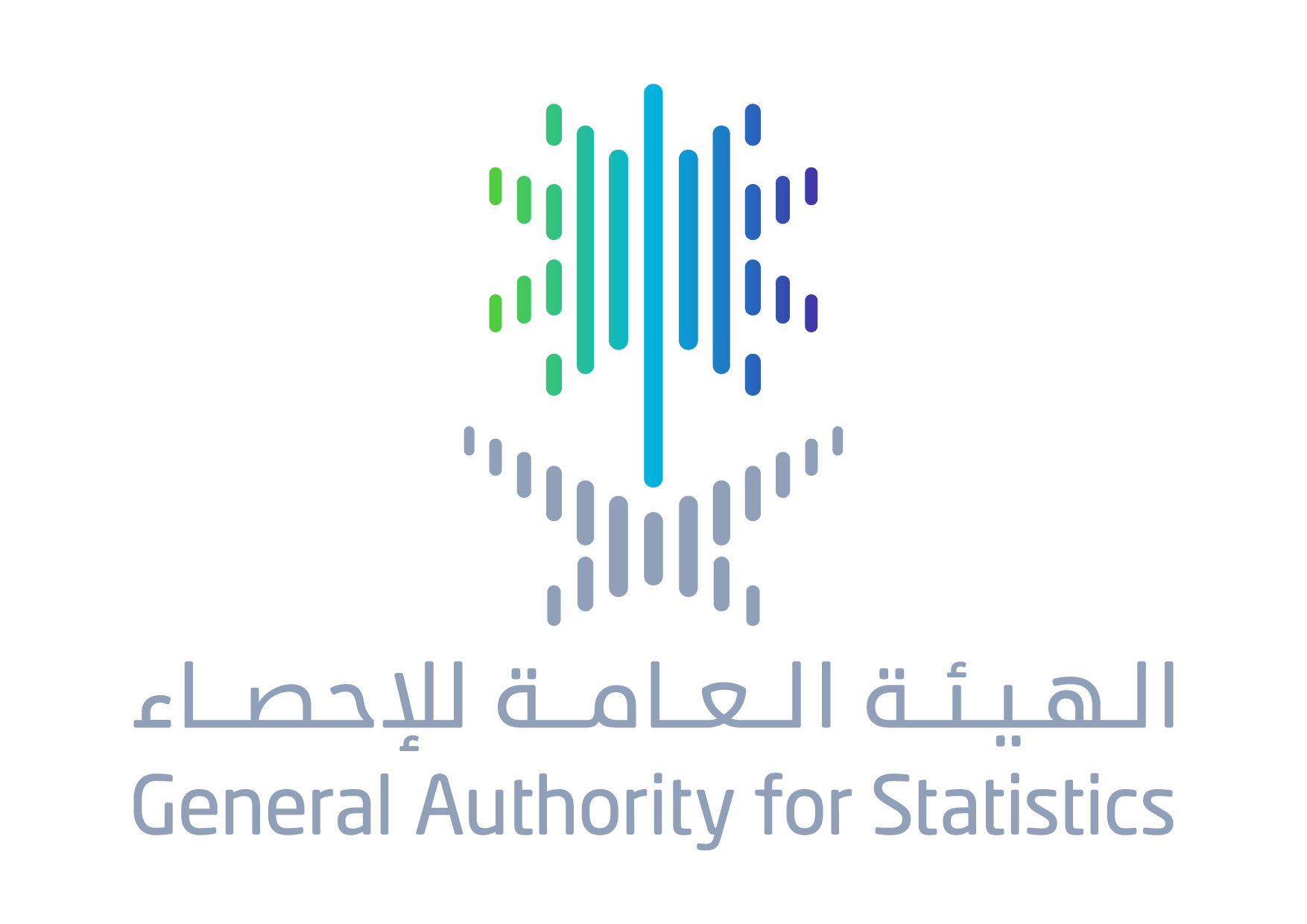
الهيئة العامة للإحصاء تبدأ في المرحلة الثانية من "تحديث دليل المسميات السكانية" تمهيداً لتعداد 2020
Including Aseer Region, Al baha, Jazan and Najran
The General Authority for Statistics Starts the Second Phase of Updating the Guidebook for the Populated Areas, in Preparation for the 2020 Population Census
In preparation for the population and houses census project (2020- 1441 AH) GaStat started to work according to a series of steps and in coordination with a number of government agencies on the technical arrangements of the implementation “for updating the populated areas guidebook”. It is considered the first field steps proceeding the census 2020 project. These steps are according to a timetable that includes all the stages of updating the guidebook for the populated names for different regions of the Kingdom and it includes: Aseer Region, Al baha Region, Jazan Region and Najran Region. In addition, there will be a number of stages that covers all the Kingdom regions during this year 2018.
This project aims to update the guidebook for the populated areas in the field and to process its data by observing all the changes occurred in the guidebook. Moreover, during the updating process, the number of dwellings and establishments in the populated areas are considered and distributed to statistical work areas, also linking the populated areas to the national address, identifying the populated areas on maps and making any necessary divisions. As well as counting the rugged areas, Badia areas and areas requiring prior coordination.
On the other hand, the General authority for statistics (GaStat) has recently held the first specialized workshops to discuss the census form (2020) within a series of workshops related to the form. And that was with the participation of some experts and specialists from the GaStat, and a number of relevant government agencies.
The project of population and housing census (2020- 1441 AH) aims to collect and publish the demographic, social and economic data of the population to provide the requirements of the government of basic data on population and housing to build the development plans, also the needs of researchers and planners, and to provide a new framework for all of the specialized statistical researches that are conducted based on the sample method. Additionally, finding a broad base of data and using it as a reliable source to conduct studies and researches required by the development programs, providing the data and indicators of population periodically to measure the population characteristics changes over the time, making local, regional and international comparisons, and to review, evaluate the population estimates in the future.
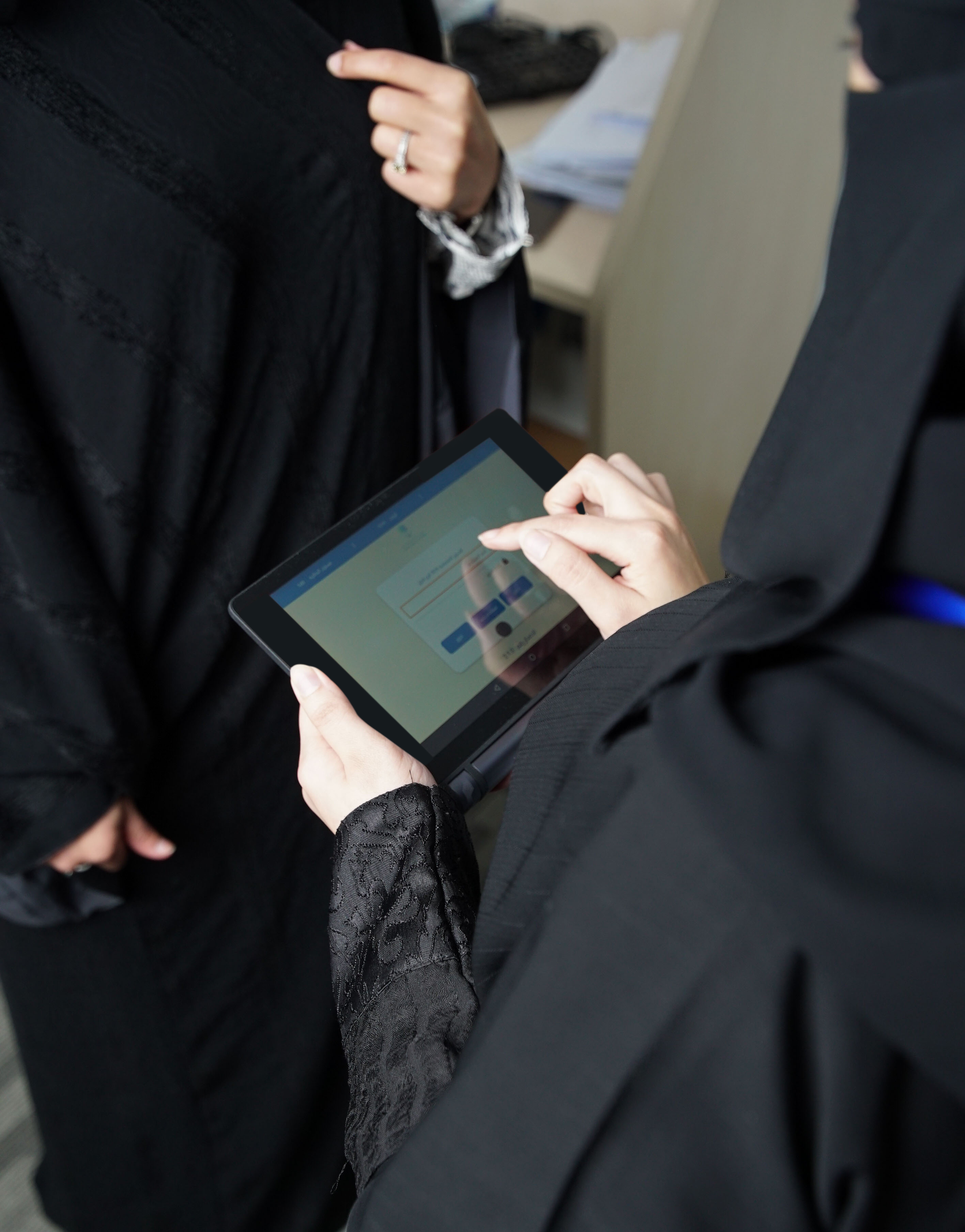
الهيئة العامة للإحصاء تتجه لتفعيل دور " المرأة " في العمل الميداني الإحصائي
With Participation of Ektefaa Charity Association in Jeddah
GaStat Tends to Activate the Role of ‘’Women’’ in the Statistical Fieldwork
GaStat tends to strengthen the statistical fieldwork with trained field staff of female statisticians in various regions of the Kingdom in order to facilitate the way of providing information to families without a male head, emphasizing the role of women as one of the active forces in the statistical sector in the Kingdom of Saudi Arabia. Where the official spokesman of GaStat, Mr. Taiseer Almofarrej, confirmed that GaStat has completed the preparation of training programs for female statisticians and field work experience.
GaStat cooperated with Ektefaa women's charity association in Jeddah to supervise the process of statisticians’ qualifying and training and to participate in the household related surveys in Jeddah, Riyadh, Hofuf, and Jazan as they have previously worked in this filed. The women’ fieldwork experience is considered one of the programs that prepares them for 2020 population census and other statistical surveys. Almofarrej added that this opportunity will contribute in facilitating data collection from families headed by a woman. Moreover, it will contribute in opening up new areas of women work and increase the women's participation in development to achieve the vision of KSA.
In addition to Ektefaa Association in Jeddah, which supervised the program, it is worth mentioning that a number of associations have participated in this experience, including (Ensan) charity committee for orphans Care in Riyadh, Al-bir society in Al-Ahsa, and Al-bir society in Jazan. Ektefaa Charity association, which is one of the specialized charities in the field of surveying and information collecting and documenting, has provided GaStat with a study on their previous experience on conducting a field survey. The study clarifies the importance of females’ engagement in the implementation of field surveys concerning household affairs. GaStat will evaluate this experience and sit a road map to activate the role of women in the field works that target households.
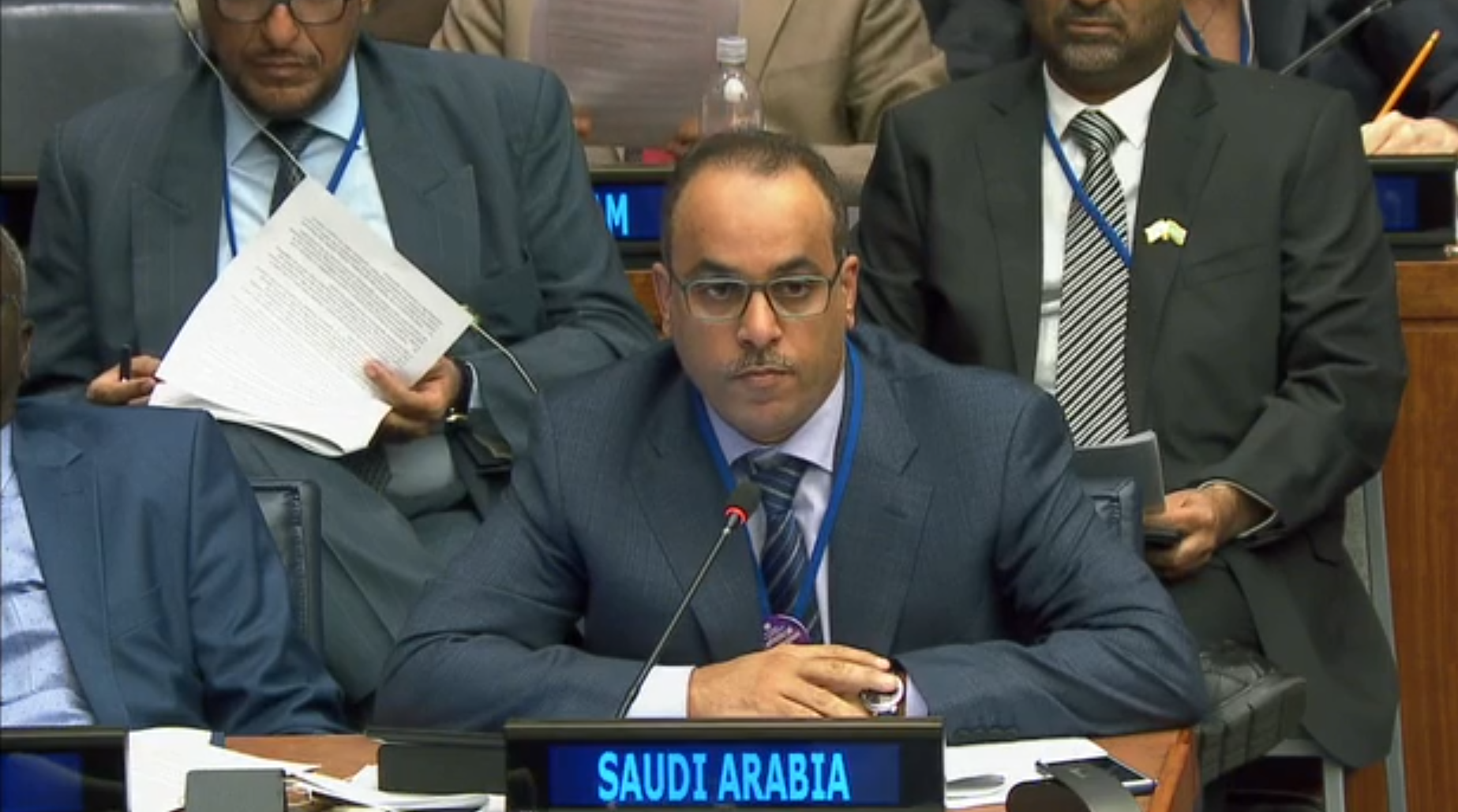
المملكة تختتم مشاركتها في أعمال الدورة (49) للجنة الإحصائية للأمم المتحدة
In order to develop the statistical sector and to follow up sustainable development goals
Saudi Arabia Ends its Participation in the Works of the United Nations Statistical Commission (49th Round)
Saudi Arabia Ends its Participation in the Works of the United Nations Statistical Commission (49th Round). It started last Tuesday until yesterday evening at the United Nations headquarters which is in New York City . In addition, the delegation headed by his Excellency Dr. Fahad bin Sulaiman Altekhaifi, president of the General Authority for Statistics. He indicated that the participation was an extension of the authority strategy for international participation. Also, to benefit from the best statistical practices because it reflected on the development of the statistical sector in the kingdom of Saudi Arabia. Moreover, he added that the kingdom of Saudi Arabia reviewed number of development axes for the statistical sector. During the works of 49th round, there was several presentations and interventions from co-sponsor delegation over four days. AL-Tekhaifi showed the statistical transformative experience was one of the axes where the authority addressed the road map and the dimensions on which it relied. Which is focusing on the importance of the client, quality and the development of the statistical sector. He mentioned that the KSA experience concerned the participants, and the progress of the statistical surveys reflect the affectivity and the importance of the listening to the clients from government entities and data users. Where the average of the surveys perversely were not over than eleven surveys in one year, but now in 2017 there are more than forty-two field surveys. In order to meet the requirements of the government entities and data users accordance with the regional and international requirements. At the level of the international statistical classification, the president of authority indicated that the authority focused on developed the statistical sector in KSA in several trends, Such as unified the use of international statistical classifications in the statistical surveys and administrative registers of ministries, government entities and privet sectors. Moreover, its first steps were unified the use of international industrial classification for economic activities in administrative registers (ISIC4), for all sectors and entities in the country. While, sector workshops were hold and meet bilaterally to define and to raise awareness of the classification. Also, to explain the mechanism of the application, and the importance of the study of the technical fields for all entities that related to. In order to ensure the access to the identical results based on one axis for the guide. Furthermore, the authority will continued the same approach for the rest of international classifications. Where, the same approach of national classification of occupation is applied recently (ISCO-08). The work of (49) round dealt with the household surveys, while authority confirmed that the household surveys is an important and main source for the different social statistics. That's because they are an active element for all the statistical systems, which based on provide several social indicators. It also considers as an important element to provide the related data of monitor progress in order to achieve the goals of sustainable development, under multitude requirements and challenges which faced by the available data.
GaStat Have focused on conducting a share amount of survey on household in that matter. In 2017 Among all the Surveys 17 of them was a household survey, and planning on doing 20 Household survey this year. The Authority is paying a great importance in register data, and has launched a numerous number of partnerships, initiatives and projects to link all the concerned institutions in the direction to come up with data that provides a lot of statistical indicators, also reducing the need for field survey.
United Nation Statistical Commission agenda included a number of topics, surrounding the open data. The participant delegators have indicated a number of steps taken by The Kingdom of Saudi Arabia on activating the Open data, to establish a high-level national committee for open data, at a ministerial level, led by The General Authority of Statics. To supervise the work regarding open data in Saudi Arabia, and strengthening coordination and partnership between the parties concerned. In addition to that, the project of Saudi Statistical Portal, which the authority is working on with a number of governmental institution, that offers statistical information’s in an up-to-date and easy-to-use way. Also, applying the best technical tools to access the information quicker and better, and applying the standards of data disaggregation as an open data, by international standards. As well as developing the digital content of the portal (e-content). And Increasing the level of e-reediness, In addition, further development of legislative and regulatory framework. The portal wouldn’t be only for the Authority, it would allow the all the institution, Authority’s and Government Institutions, to display their statistics in the same modern way, and working on strengthening the content with open data. The portal will support the social participation; it will allow visitors to publish their articles. The delegators have declared that this project consist of processing the basic data of GaStat, in addition to the other governmental data and the privet sector, to serve as convertible data which could be interactive graphics. GaStat has represented Saudi Arabia in this field lately as a member of the International Labour Organization of Big data and Official States-UN, whose membership includes 22 countries and 9 international authorities’.
On the other hand, GaStat have presented, through their participation, about their current experience in National Statistical Data(MASDAR) for conducting data and statistical indicators from the concerned authorities, and work with them to provide, publish and exchange data and national statistical indicators through Databases and specify electronic portals. Which support making decision in Saudi Arabia, also it’s a solid Informational bank to support Saudi Arabia 2030 Vision and National Transformation Programme 2020. GaStat have declared through the presentation that the goal of this programme is to build a comprehensive national statistical database which have all the statistical data from all the inner and outer sources to produce tabulations, indicators and analysis where the users and analysts need those data in or out of the Authority for statistical references to support decision, and making all of the development plans.
On the margins of the round the participant Saudi delegates met with a number of statistical commissions relevant to housing, social and economic statistics, as well as the South Korean delegates to discuss the road map of reinstate the agreement between the two countries.
It started at the United Nations headquarters which is in New York City, on the last Tuesday until yesterday evening. In addition, the delegation headed by his Excellency Fahad Ibn Sliman AL-Tekhaifi who is the president of the general authority for statistics. He indicated that the participation was an extension of the authority strategy for international participation. Also, to benefit from the best statistical practices because it reflected on the development of the statistical sector in the kingdom of Saudi Arabia. Moreover, he added that the kingdom of Saudi Arabia reviewed number of development axes for the statistical sector. During the work of (49) round there was several presentations and interventions from co-sponsor delegation over four days. AL-Tekhaifi showed the statistical transformative experience was one of the axes where the authority addressed the road map and the dimensions on which it relied. Which is focusing on the importance of the client, quality and the development of the statistical sector. He mentioned that the KSA experience concerned the participants, and the progress of the statistical surveys reflect the affectivity and the importance of the listening to the clients from government entities and data users. Where the average of the surveys perversely were not over than eleven surveys in one year, but now in 2017 there are more than forty-two field surveys. In order to meet the requirements of the government entities and data users accordance with the regional and international requirements. At the level of the international statistical classification, the president of authority indicated that the authority focused on developed the statistical sector in KSA in several trends, Such as unified the use of international statistical classifications in the statistical surveys and administrative registers of ministries, government entities and privet sectors. Moreover, its first steps were unified the use of international industrial classification for economic activities in administrative registers (ISIC4), for all sectors and entities in the country. While, sector workshops were hold and meet bilaterally to define and to raise awareness of the classification. Also, to explain the mechanism of the application, and the importance of the study of the technical fields for all entities that related to. In order to ensure the access to the identical results based on one axis for the guide. Furthermore, the authority will continued the same approach for the rest of international classifications. Where, the same approach of national classification of occupation is applied recently (ISCO-08). The work of (49) round dealt with the household surveys, while authority confirmed that the household surveys is an important and main source for the different social statistics. That's because they are an active element for all the statistical systems, which based on provide several social indicators. It also considers as an important element to provide the related data of monitor progress in order to achieve the goals of sustainable development, under multitude requirements and challenges which faced by the available data.
GaStat Have focused on conducting a share amount of survey on household in that matter. In 2017 Among all the Surveys 17 of them was a household survey, and planning on doing 20 Household survey this year. The Authority is paying a great importance in register data, and has launched a numerous number of partnerships, initiatives and projects to link all the concerned institutions in the direction to come up with data that provides a lot of statistical indicators, also reducing the need for field survey.
United Nation Statistical Commission agenda included a number of topics, surrounding the open data. The participant delegators have indicated a number of steps taken by The Kingdom of Saudi Arabia on activating the Open data, to establish a high-level national committee for open data, at a ministerial level, led by The General Authority of Statics. To supervise the work regarding open data in Saudi Arabia, and strengthening coordination and partnership between the parties concerned. In addition to that, the project of Saudi Statistical Portal, which the authority is working on with a number of governmental institution, that offers statistical information’s in an up-to-date and easy-to-use way. Also, applying the best technical tools to access the information quicker and better, and applying the standards of data disaggregation as an open data, by international standards. As well as developing the digital content of the portal (e-content). And Increasing the level of e-reediness, In addition, further development of legislative and regulatory framework. The portal wouldn’t be only for the Authority, it would allow the all the institution, Authority’s and Government Institutions, to display their statistics in the same modern way, and working on strengthening the content with open data. The portal will support the social participation; it will allow visitors to publish their articles. The delegators have declared that this project consist of processing the basic data of GaStat, in addition to the other governmental data and the privet sector, to serve as convertible data which could be interactive graphics. GaStat has represented Saudi Arabia in this field lately as a member of the International Labour Organization of Big data and Official States-UN, whose membership includes 22 countries and 9 international authorities’.
On the other hand, GaStat have presented, through their participation, about their current experience in National Statistical Data(MASDAR) for conducting data and statistical indicators from the concerned authorities, and work with them to provide, publish and exchange data and national statistical indicators through Databases and specify electronic portals. Which support making decision in Saudi Arabia, also it’s a solid Informational bank to support Saudi Arabia 2030 Vision and National Transformation Programme 2020. GaStat have declared through the presentation that the goal of this programme is to build a comprehensive national statistical database which have all the statistical data from all the inner and outer sources to produce tabulations, indicators and analysis where the users and analysts need those data in or out of the Authority for statistical references to support decision, and making all of the development plans.
On the margins of the round the participant Saudi delegates met with a number of statistical commissions relevant to housing, social and economic statistics, as well as the South Korean delegates to discuss the road map of reinstate the agreement between the two countries.
